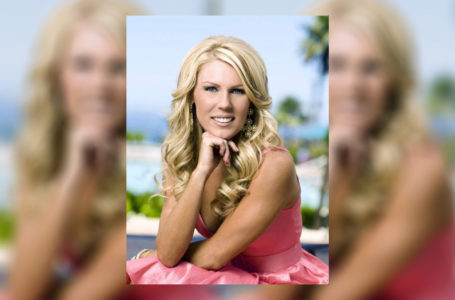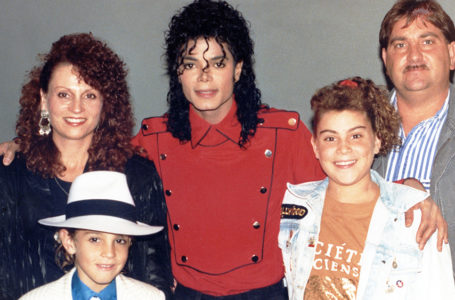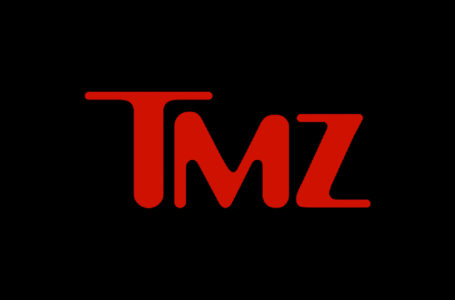In the wake of the #MeToo movement and the swift fall of Weinstein, Lauer, Spacey and others, workplace probes have proliferated, but differing standards and questions over whether to hire outside lawyers create “significant exposure.”
On Nov. 21, CBS News moved swiftly to fire Charlie Rose following a string of women accusing the star anchor of sexual harassment in a Washington Post article. There was an internal inquiry, and CBS News producers interviewed at least one accuser for an on-air report, but no outside investigator was hired.
Skipping an outside probe in this circumstance might seem unorthodox, especially considering the lengths to which many networks, studios and talent agencies have bent over backward to engage in by-the-book procedures in the wake of a tsunami of harassment claims inspired by the #MeToo movement. But CBS’ brisk action the day after the Post dropped its Nov. 20 story on his behavior, all of which came from his time on his eponymous PBS show, coincided with Rose’s contract: Sources say the pact ran out at the end of the year.
However, CBS did conduct a more substantive subsequent internal review, the network has said, and like most media companies, has instituted mandatory in-person harassment training and awareness programs for all employees, including on-air talent. But that all came in the aftermath of Rose’s ouster.
The Rose case illustrates the challenge many lawyers and industry insiders have observed in the months since the #MeToo era was launched by the Harvey Weinstein revelations in The New York Times and The New Yorker. The movement has touched nearly every single major company in Hollywood and has expanded beyond sexual misdeeds to now include allegations of once-accepted behaviors like yelling and abusiveness on set. Yet there is little consistency in how claims are handled and adjudicated, and many say that ambiguity is problematic for both the accusers and accused.
Studios have no uniformity to their disciplinary and investigative processes. Some have been thoughtful and have investigated claims thoroughly before making any determinations. Others have been reactionary and have taken disciplinary action immediately upon learning of an allegation without following the procedures in their employee handbooks.
says attorney Bryan Freedman of Freedman & Taitelman, whose clients include UTA.
In fact, Freedman predicts employers who take disciplinary actions without following their own guidelines could face legal liability down the line.
There may be significant exposure should the action taken be wrongful and without adherence to an agreed-upon process.
Bryan adds.
At some companies, claims are investigated internally; at others, an outside investigator is hired immediately. At some outlets, employees are put on leave during a probe; at others, they aren’t. While NBC News fired Matt Lauer on Nov. 29 after a “review” of accusations against the Today anchor, the formal investigation by NBCUniversal’s legal department, which is led by Kim Harris and is expected to interview at least 40 people, is still ongoing. Results are expected in the coming weeks, and NBC News Group chairman Andy Lack has promised that the review will include a “culture assessment” of the news division. But the question remains just how exhaustive these investigations are and, considering the financial stakes, whether the top of Hollywood’s food chain faces as much scrutiny as the bottom.
The E! wardrobe stylist who accused Ryan Seacrest of sexual harassment has alleged that the investigation that cleared the host was not thorough enough. Nearly three months after Suzie Hardy complained to E!, outside counsel hired by parent NBCUniversal completed its investigation and found “insufficient evidence to support the claims.” Hardy then went public and alleged the probe was one-sided given that investigators never contacted four witnesses she had provided who she said could corroborate parts of her story. NBCU sources argued that its investigation focused only on eyewitnesses, which would not have included people Hardy says she told of the abuse.
The kind of behavior companies are investigating varies greatly as well. Jeff Franklin was fired as showrunner of Fuller House, produced by Warner Bros. TV for Netflix, in late February after complaints of verbal abuse by the TV veteran in the writers room and on the set. Franklin, who quickly hired attorney Larry Stein to fight the allegations, was not accused of sexual harassment or physical misconduct, and it is unclear what kind of investigation Warner Bros. launched. Andrew Kreisberg, another Warner Bros. TV producer, was let go after several subordinates went public with complaints of abusiveness, but only after WBTV investigated the claims.
When it comes to getting to the heart of allegations, Latham & Watkins attorney Marvin Putnam says the best strategy is to hire outside counsel. “Inside counsel is generally seen as part of management. As such, complainants — as well as witnesses — are often reluctant to come forward or be completely forthcoming,” says Putnam, who was hired by ICM Partners to look into claims by former Fox News contributor Tamara Holder that agents discouraged her from filing a sexual assault complaint against the network. “Moreover, any finding — short of separation — can be viewed with skepticism or as outcome determinative.”
“Time is of the essence,” adds employment lawyer Ann Fromholz, who was retained by WME in early February to investigate harassment allegations against agent Philip Raskind. (Raskind remains at work during the probe, in contrast to another WME agent, Adam Venit, who was suspended without pay following a harassment investigation, then reinstated.) “I gather whatever [documents and evidence] I can before the first interview,” says Fromholz. “This all happens quickly because you need to act promptly in these cases, particularly if these people are still working together. Then I begin interviews.”
After a three-week investigation, ICM agents Steve Levine, Matt Sorger and Will Horowitz were cleared of any misconduct in the Holder case. By contrast, CAA is said to have conducted its own internal investigation into agent Cameron Mitchell, who was fired for cause in the wake of a claim by an actress that he sexually assaulted her.
Outside investigations don’t come cheap. A typical probe that runs less than a month costs in the low-six figures; the longer and more complex, the higher the tally. A number of lawyers were enlisted to vet the single claim of sexual harassment against Academy president John Bailey, including Loeb & Loeb’s Ivy Kagan Bierman, Latham & Watkins’ David Schindler (hired by Bailey) and Quinn Emanuel’s John Quinn (AMPAS’ longtime general counsel). Bailey was cleared by the Academy board two weeks after the claim was first made.
In the face of allegations against Weinstein in October, The Weinstein Co. hired Debevoise & Plimpton to conduct an independent investigation. But according to TWC bankruptcy filings, a special board committee halted the probe less than one month later when the company ran out of funds, derailing the process at its most critical juncture.
Kagan Bierman says each claim must be evaluated in its own right. “I start with the claimant. I ask if they have any witnesses, talk to the witnesses, then go to the accused and tell the person what the allegations are and give that person a chance to respond and give witnesses,” she says. “Then I sit down with the client and tell them what information and facts I have and give an assessment of the credibility of the people I’ve spoken with. The client always makes the decisions about what the resolution will be.”
Fans of hiring outside investigators say a thorough process can benefit accusers seeking justice as well as those who are falsely accused and later vindicated. And the fact that the scope of “bad behaviors” is broadening beyond sexual harassment only underscores the desire for consistency in response. In recent weeks, actor Fred Savage and Stranger Things creators Matt and Ross Duffer have been accused by female below-the-line workers of creating hostile work environments. In the case of the Duffers, Netflix said, “We looked into the concern … and found no wrongdoing.” Savage, accused by a costume designer on his short-lived series The Grinder, was cleared by Fox at the time in 2015. But he and the studio now face a lawsuit filed by the woman.
Sometimes staffers can be quizzed as part of multiple harassment probes going on simultaneously. Even before Nov. 3, when Netflix severed ties with House of Cards star Kevin Spacey after mounting allegations of sexual harassment, series staffers were receiving calls from an investigator asking about Cards co-star Robin Wright.
A Cards crewmember, a woman in the costume department, had lodged a formal complaint against Wright, accusing the actress of striking her during a fitting several months earlier. Sources say MRC, the show’s producer (which shares a parent company with THR), immediately launched an internal investigation, found no wrongdoing on the part of Wright and considers the matter closed. However, MRC’s investigation into Spacey remains open while the studio attempts to thoroughly follow up on all leads and complaints.
Lawyers say consistency is important because investigations are now the new normal in Hollywood. Notes Kagan Bierman, “Many claimants just want to be heard, want it to be taken seriously, want it to be investigated and want a resolution that works for them.”
——–
Ashley Cullins and Marisa Guthrie contributed to this report.
This story first appeared in the April 12 issue of The Hollywood Reporter magazine.





